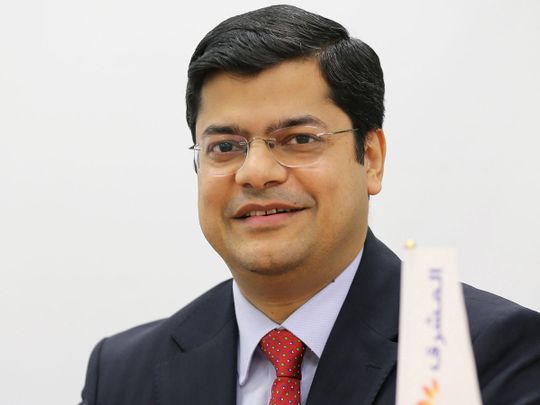
What are the trends that Mashreq is seeing in terms of digital money transfers during the Covid-19 crisis? Are more people using digital channels to carry out transactions?
Mobile banking has been the preferred mode of transfers for Mashreq customers with 98 per cent of remittances being initiated digitally and the trend has continued to be the same. However, there has been an increase in new or rather infrequent customers moving to digital channels.
Mashreq Bank firmly believes in faster processing of digital money transfers and enacts this by being the first bank to offer solutions such as SWIFT gpi, IPI or a vast network of instant credit countries worldwide. The product suite supports and motivates more customers to take control of their money transfers digitally – initiate, transact and track.
QuickRemit is part of Mashreq’s strategy to provide seamless digital banking services. What are the unique features that appeal to customers?
Convenience, speed, transparency and value are the foundations of QuickRemit. The product supports remittances to home countries, which is a need for almost every expatriate in the UAE. It empowers Mashreq customers to send money home anytime easily from their smartphones, expect instant or same day credit into beneficiary’s account and be absolutely certain of the fees charged. In traditional channels, fees used to be an ambiguity, but in QuickRemit this is clear upfront, with no surprises in the form of correspondent bank charges.
You recently partnered with NIUM, how does it to complement Mashreq’s existing competitive money transfers via QuickRemit?
Mashreq’s partnership with NIUM has powered the expansion of instant or same day transfers to 30 more countries. Mashreq customers can now send money instantly to the United Kingdom, Singapore, all of Europe, Philippines, Sri Lanka and more.
What new trends do you foresee in the cross-border digital payments landscape going forward?
In my opinion, cross-border payments will witness a shift in gears in acceptance of digital payments and this will be on both ends: origination and termination. This transition was ongoing. However, the current dynamics and challenges around managing cash is expected to boost digital transfers dramatically.
The recurring nature of the need makes its worthwhile to get accustomed to digital solutions for sending money and also boost of account credits in developing markets. This is also an opportunity for banks to influence and acquire new customers on the send side, with a robust money transfer product and build stickiness for recurring payments in the future.











